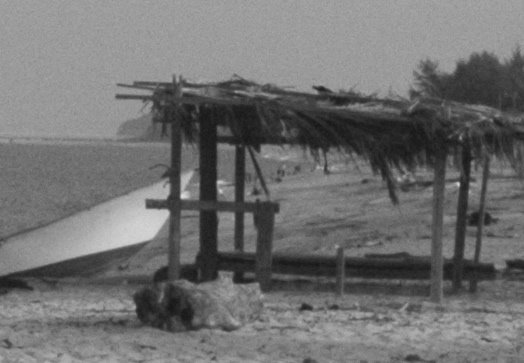Ind, Nicholas (2nd Ed.) (2004). Living the brand. London: Kogan PageIdiosyncratic, adj.Of or relating to idiosyncrasy; peculiar or individual: she emerged as one of the great idiosyncratic talents of the Nineties.
DERIVATIVES: Idiosyncratically,
adv.
Obsolescent, adj.Becoming obsolete: the custom is now obsolescent.
DERIVATIVES: obsolesce,
v.,
n., existing systems begin to obsolesce.
Anathema, n.1. something or someone that one vehemently dislikes: racial hatred was anathema to her.
2. a formal curse by a pope or a council of the Church, excommunicating a person or denouncing a doctrine. •poetic/literary a strong curse: the sergeant clutched the ruined communicator, muttering anathemas.
Despoil, v.[trans.] (often be despoiled)Steal or violently remove valuable or attractive possessions; plunder: the church was despoiled of its marble wall covering.
DERIVATIVES: despoiler,
n., despoilment,
n., despoliation,
n.: the despoliation of the countryside plunder, plundering, pillaging, looting, ransacking, ravishing, sacking; ravaging, devastation, ruination, vandalism.
NOTE: A learned word, spoliation means “the act of ruining, destroying, or spoiling something.” In the hands and mouths of the less-than-learned, it’s often misspelled and mispronounced spoilation.
Proselytize, v.[trans.]Convert or attempt to convert (someone) from one religion, belief, or opinion to another: the program did have a tremendous evangelical effect, proselytizing many [ intrans.] proselytizing for converts [as
n. ] ( proselytizing) no amount of proselytizing was going to change their minds. • advocate or promote (a belief or course of action): Davis wanted to share his concept and proselytize his ideas.
DERIVATIVES: proselytizer,
n.
Apposite, adj.Apt in the circumstances or in relation to something: an apposite quotation [the observations are apposite to the discussion.]
DERIVATIVES: appositely,
adv., appositeness, n., apposite, adj.: an apposite caption accompanies each photo appropriate, suitable, fitting, apt, befitting; relevant, pertinent, appurtenant, to the point, applicable, germane, material, congruous, felicitous.
Maverick, n.1. An unorthodox or independent-minded person: a free-thinking maverick. • A person who refuses to conform to a particular party or group: the maverick Connecticut Republican. [
Adj., unorthodox: a maverick detective.]
Provenance, n. The place of origin or earliest known history of something: an orange rug of Iranian provenance. The beginning of something’s existence; something’s origin: they try to understand the whole universe, its provenance and fate; The provenance of the paintings origin, source, place of origin; birthplace, fount, roots, pedigree, derivation, root, etymology; formal radix.
Truism, n.A statement that is obviously true and says nothing new or interesting: the truism that you get what you pay for. Logic a proposition that states nothing beyond what is implied by any of its terms.
DERIVATIVES: truistic,
adj., truism,
n., “look before you leap” is a truism that Sharon has rarely heeded. platitude, commonplace, cliché, stock phrase, banality, (old) chestnut, (old) saw, axiom, bromide.
Tonal, adj.Of or relating to the tone of music, color, or writing: his ear for tonal color; the poem’s tonal lapses. of or relating to music written using conventional keys and harmony. Phonetics (of a language) expressing semantic differences by varying the intonation given to words or syllables of a similar sound.
DERIVATIVES: tonally, adv.
Infer, v.[Trans.] deduce or conclude (information) from evidence and reasoning rather than from explicit statements: [with clause] from these facts we can infer that crime has been increasing.
DERIVATIVES: inferable (also inferrable)
adj.
USE: There is a distinction in meaning between infer and imply. In the sentence: the speaker implied that the general had been a traitor, the word implied means that something in the speaker’s words ‘suggested’ that this man was a traitor (although nothing so explicit was actually stated). However, in- we inferred from his words that the general had been a traitor, the word inferred means that something in the speaker’s words enabled the listeners to ‘deduce’ that the man was a traitor.
Infer and imply can describe the same event, but from different angles. Mistakes occur when infer is used to mean imply, as in, are you inferring that I’m a liar? instead of, are you implying that I’m a liar?
Corollary, n. ( pl. -laries)A proposition that follows from (and is often appended to) one already proved. A direct or natural consequence or result: the huge increases in unemployment were the corollary of expenditure cuts.
Adj., forming a proposition that follows from one already proved. associated; supplementary.
n., job losses are the unfortunate corollary of budget cutting consequence, result, end result, upshot, effect, repercussion, product, by-product, offshoot.
Collation, n.1. the action of collating something: data management and collation.
2. a light, informal meal: in the Roman Catholic Church: a light meal allowed during a fast.
Misanthrope (also misanthropist), n.A person who dislikes humankind and avoids human society.
DERIVATIVES: misanthropic, adj., misanthropical, adj., misanthropically, adv.
Intransigent, adj.Unwilling or refusing to change one’s views or to agree about something.
n., an intransigent person.
DERIVATIVES: intransigence,
n., intransigency,
n., intransigently,
adv.Plaudits, pl. n.Praise: the network has received plaudits for its sports coverage. the applause of an audience: the plaudits for the winner died down; The mayor won plaudits for his aggressive campaign against crime praise, acclaim, commendation, congratulations, accolades, compliments, cheers, applause, tributes, bouquets; a pat on the back; informal a (big) hand.
Volte-face., n. ( pl. same)An act of turning around so as to face in the opposite direction; an abrupt and complete reversal of attitude, opinion, or position : a remarkable volte-face on taxes.
Encumbrance., n.A burden or impediment; Law a mortgage or other charge on property or assets. [archaic: a person, esp. a child, who is dependent on someone else for support.]
1. He soon found the old equipment a great encumbrance hindrance, obstruction, obstacle, impediment, constraint, handicap, inconvenience, nuisance, disadvantage, drawback; literary trammel; archaic cumber.
2. she knew she was an encumbrance to him; burden, responsibility, obligation, liability, weight, load, stress, strain, pressure, trouble, worry; millstone, albatross, cross to bear; informal ball and chain.
Untenable, adj.(Esp. of a position or view) not able to be maintained or defended against attack or objection: this argument is clearly untenable.
DERIVATIVES: untenability,
n., untenably,
adv.
These untenable explanations are not helping your case; indefensible, insupportable, unsustainable, unjustified, unjustifiable, flimsy, weak, shaky.
Didactic, adj.Intended to teach, particularly in having moral instruction as an ulterior motive: a didactic novel that set out to expose social injustice. In the manner of a teacher, particularly so as to treat someone in a patronizing way: slow-paced, didactic lecturing.
DERIVATIVES: didactically;
adv., didacticism,
n.
The didactic photojournalism of Jacob Riis instructive, instructional, educational, educative, informative, informational, edifying, improving, pedagogic, moralistic.
Serendipity, n.The occurrence and development of events by chance in a happy or beneficial way: a fortunate stroke of serendipity; a series of small serendipities.
DERIVATIVES: serendipitous,
adj., serendipitously,
adv.
Our meeting was purely serendipitous chance; accidental, coincidental; lucky, fluky, fortuitous; unexpected, unforeseen.
Consecrate, v. [trans.]Make or declare (something, typically a church) sacred; dedicate formally to a religious or divine purpose: the present Holy Trinity church was consecrated in 1845.
[as
adj. ] consecrated ground. In Christian belief, make bread or wine into the body or blood of Christ: [as adj.] They received the host but not the consecrated wine. Ordain (someone) to a sacred office, typically that of bishop: in 1969 he was consecrated bishop of Uganda.
Informal devote (something) exclusively to a particular purpose: they’d decided to consecrate all their energies to this purposeful act.
DERIVATIVES: consecration,
n., consecrator,
n., consecratory,
adj.
Idiosyncrasy, n. (pl. -sies) (usu. idiosyncrasies)A mode of behavior or way of thought peculiar to an individual: one of his little idiosyncrasies was always preferring to be in the car first.
Transient, adj.Lasting only for a short time; impermanent: a transient cold spell. Staying or working in a place for only a short time: the transient nature of the labor force in catering.
n.,
1. a person who is staying or working in a place for only a short time.
2. a momentary variation in current, voltage, or frequency.
DERIVATIVES: transience,
n., transiency,
n., transiently,
adv.,
Our interest in the environment must not be transient; transitory, temporary, short-lived, short-term, ephemeral, impermanent, brief, short, momentary, fleeting, passing, here today and gone tomorrow; literary evanescent, fugitive.
n., the plight of poor transients hobo, vagrant, vagabond, street person, homeless person, down-and-out; traveler, drifter, derelict.
Iconoclasm, n.1. The action of attacking or assertively rejecting cherished beliefs and institutions or established values and practices.
2. The rejection or destruction of religious images as heretical; the doctrine of iconoclasts.
Irreverent, adj.Showing a lack of respect for people or things that are generally taken seriously: she is irreverent about the whole business of politics.
DERIVATIVES: irreverence,
n., irreverential,
adj., irreverently,
adv.
Hubris, n.Excessive pride or self-confidence. (In Greek tragedy) excessive pride toward or defiance of the gods, leading to nemesis.
DERIVATIVES: hubristic,
adj.,
n., the hubris among economists was shaken; arrogance, conceit, haughtiness, hauteur, pride, self-importance, egotism, pomposity, superciliousness, superiority; informal big-headedness, cockiness. antonym humility.
Litigious, adj.Concerned with lawsuits or litigation. Unreasonably prone to go to law to settle disputes. Suitable to become the subject of a lawsuit.
DERIVATIVES: litigiously,
adv., litigiousness,
n.
Silo, n. ( pl. -los)1. A tower or pit on a farm used to store grain. A pit or other airtight structure in which green crops are compressed and stored as silage.
2. An underground chamber in which a guided missile is kept ready for firing.
Catharsis, n.
The process of releasing, and thereby providing relief from, strong or repressed emotions. The hope was that hypnosis would bring about a catharsis emotional release; relief, release, venting; purging, purgation, purification, cleansing; Psychoanalysis abreaction.
Obfuscate, v. [trans.]Render obscure, unclear, or unintelligible: the spelling changes will deform some familiar words and obfuscate their etymological origins. Bewilder (someone): it is more likely to obfuscate people than enlighten them.
DERIVATIVES: obfuscation,
n., obfuscatory,
adj.,
v.,
1. Mere rationalizations to obfuscate rather than clarify the real issue. obscure, confuse, make unclear, blur, muddle, complicate, muddy, cloud, befog. antonym clarify.
2. Her work became more and more obfuscated by mathematics and jargon bewilder, mystify, puzzle, perplex, confuse, baffle, confound, bemuse, befuddle, nonplus; informal flummox.
Osmosis, n.Biology & Chemistry: a process by which molecules of a solvent tend to pass through a semipermeable membrane from a less concentrated solution into a more concentrated one, thus equalizing the concentrations on each side of the membrane. Figurative the process of gradual or unconscious assimilation of ideas, knowledge, etc. What she knows of the blue-blood set she learned not through birthright, not even through wealth, but through osmosis.
Proselytize, v. [trans.]Convert or attempt to convert (someone) from one religion, belief, or opinion to another: the program did have a tremendous evangelical effect, proselytizing many [ intrans. ] proselytizing for converts | [as
n. ] ( proselytizing) no amount of proselytizing was going to change their minds. Advocate or promote (a belief or course of action): Davis wanted to share his concept and proselytize his ideas.
DERIVATIVES: proselytizer,
n.,
v.,
1. I’m not here to proselytize evangelize, convert, save, redeem, win over, preach (to), recruit, act as a missionary.
2. He wanted to proselytize his ideas promote, advocate, champion, advance, further, spread, proclaim, peddle, preach, endorse, urge, recommend, boost.
Veracity, n.Conformity to facts; accuracy: officials expressed doubts concerning the veracity of the story. Habitual truthfulness: voters should be concerned about his veracity and character.
n., We do not question the veracity of your story truthfulness, truth, accuracy, correctness, faithfulness, fidelity; reputability, honesty, sincerity, trustworthiness, reliability, dependability, scrupulousness, ethics, morality, righteousness, virtuousness, decency, straightforwardness, goodness, probity.


